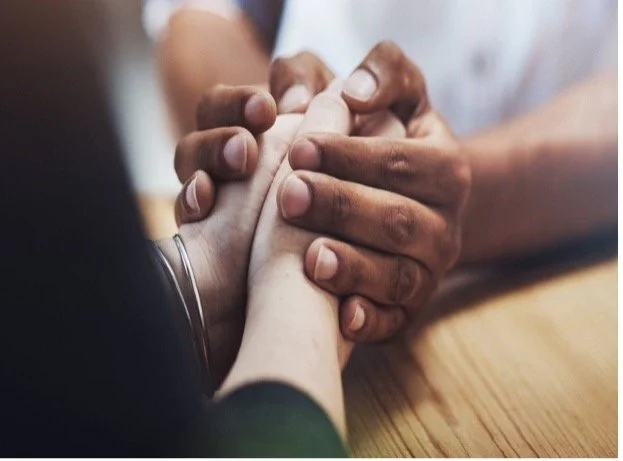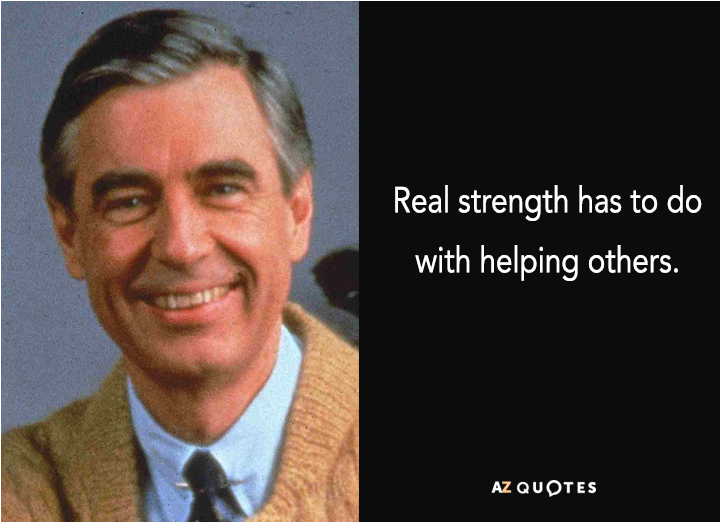
Gifts and Strengths of Type Two
We can look at the gifts and strengths of type Two with appreciation for the Twos in our life and as something we can develop in ourselves. Ideally, we want to have flexibility and be able to access the gifts and strengths of all nine personality types when they are called for in the situation.
The gifts and strengths of each type are found at the healthy levels of the personality. Here the person is closer to their essence and the gifts and strengths express the essential quality. For the Two this means their sensitivity to loving kindness underlies their strengths.
Empathy
Twos have a great gift for empathy, knowing how others feel. Empathy is defined as:
The action of understanding, being aware of, being sensitive to, and vicariously experiencing the feelings, thoughts, and experience of another.
Our brains are designed to help us relate to each other with empathy. Neurologists have discovered mirror neurons in our brains that fire in sync with the neurons of others.
Dr. Dan Siegel has resources online that explain mirror neurons and how our brains are wired for empathy- what happens in our brains that might lead us to feel thirsty when we watch someone else drink a glass of water. Interestingly, there is an emotional, feeling sense in how mirror neurons work. We understand how other people are feeling, an area where Twos excel.
Empathy is a gift that is fundamental to human society - one of the core skills of emotional intelligence. Lack of empathy is what underlies anti-social behaviour.
The organization Roots of Empathy brings babies into classrooms to interact with young children as a way of building empathy. They say that empathy building in children reduces aggression, increases sharing, caring, and inclusion, and promotes resilience, well-being, and positive mental health.
The gift of empathy is what underlies the Two’s caring and generosity- they feel the pain of others and are sensitive to their needs. They live from their beautiful open hearts.
Note that empathy is different from sympathy- we don’t feel sorry for the other person, we put ourselves in their shoes and share in their pain. Compassion is closely related to empathy- sensing the pain of others moves us to feel compassion towards them.
The Two in all of us is the part of us that cares about others, knows how others feel and reaches out to tend to their pain.
“A life not lived for others is not a life.”
Love in Action, Kindness, Generosity
The gift that Twos express is unconditional love. Love for a pet or a child may give us the flavour of unconditional love in a simple way. Love between romantic partners can also have the passionate, merging sense of pure love. Unconditional love flows freely and has a quality of being equal or shared- it is not distorted as we so often experience human love. When love is unconditional, we feel like caring and giving freely- without “strings”. At their best, Twos care and give this way- generously, freely, and unconditionally.
Perhaps most beautifully, Twos show us how love means love in action- it is not just a passive emotion. Twos “do” for others. They care for others well-being and lavish others with heartfelt attention in concrete ways. They are people of service. It may be in their own family that they serve meals, give gifts and take care of others, it may be in their work in helping professions or in their communities- or all of the above. Twos will notice the mother with a stroller stuck in front of a staircase and cross the road to help her. They know their neighbour is sick and bring chicken soup. These are just examples of how the Two orients to helping. The common denominator is the loving kindness they express in deeds.
Mother Theresa is perhaps the most famous exemplar of Two, she is an icon of selfless love in action. Founder of the Order of the Missionaries of Charity, an order of women dedicated to helping the poor, Mother Theresa was canonized as Saint Teresa of Calcutta in 2016. She devoted her life to helping the poor, the destitute, the hungry, lepers and the dying.
When she was growing up in Macedonia, Mother Teresa’s mother always shared their table with the destitute and is quoted as teaching her daughter “My child, never eat a single mouthful unless you are sharing it with others”.
It may seem ridiculous to hold up the exalted example of a Saint and of course Twos do not usually devote their lives to caring for the poor. But this image of not eating a single mouthful without sharing is not far off the feeling of the Two gift. Mother Teresa was not above criticism as a person and you can read about her “dark side” online, but for our purpose we can appreciate her life as one of love in action.
Expressing love in action has been described by psychologist Erich Fromm as the very definition of love. In his book The Art of Loving Fromm said “the ‘feeling’ of love is superficial in comparison to one's commitment to love via a series of loving actions over time”. The motivation for the healthy Twos generosity, helping and giving is this natural commitment to love in action. They express their caring with actions, and they have no expectation of receiving anything in return.
Relationships, Intimacy
Being focused on others and wanting intimacy and closeness make healthy Twos gifted at cultivating relationships. Relationships are vital to all of us and a very broad topic.
When we look through the Two lens, we know that relationships are the most important thing in life. Most of us might agree with this sentiment and we put a lot of attention on our relationships. However, understanding the gift of Two can help us “up our relationship game”. Twos naturally take the approach to relationships that the rest of us must learn and practice- basically by being more selfless, making it more about what we are giving the other person and how we demonstrate our love.
The Gottman Institute offers “A Research Based Approach to Relationships” based on the premise that relationships are hard work and that being “good” at loving other people doesn’t come naturally to most people. They teach that relationship skills can be learned and practiced, for example improving communication, displaying affection, and spending more time together. These are the natural skills of Two and they stem from truly caring about the other person. Twos are not focusing on themselves or what they are getting out of a relationship, so in a way they tilt the table in favour of the “hard work” of good relationships.
The gift of Two translates across all relationships including parenting, friendships, at work and in communities.
An example of bringing love to children and “the neighborhood” is Fred Rogers, likely a Two. There has been renewed interest in Roger’s life and the philosophy of his TV show “Mr. Rogers” recently with the release of both a documentary and a movie starring Tom Hanks.
Fred Rogers dedicated his life to caring for and championing kids by teaching his message of simple kindness. He also had a quiet strength that helps us understand that loving energy is not “soft”. Go online and watch his famous testimony before a Senate committee in 1969. Rogers was arguing for funding for PBS children’s programming, and he inspirationally expressed the value of his show, particularly in helping children with their feelings. He contrasted his show and its impact on children with violent cartoons. It’s only 6 minutes long and well worth watching, the Senator listening to him starts out cynical and ends up saying he has “goosebumps”. The message that Mr. Rogers gave to children, “I like you, just the way you are”, is one of heartfelt kindness.
Here are some Fred Rogers quotes on love and relationships which express the beautiful gift of Two:
There are three ways to ultimate success: The first way is to be kind. The second way is to be kind. The third way is to be kind.
Taking care is one way to show your love. Another way is letting people take good care of you when you need it.
Mutual caring relationships require kindness and patience, tolerance, optimism, joy in the other's achievements, confidence in oneself, and the ability to give without undue thought of gain.
Love and success, always in that order. It's that simple AND that difficult.
Love is like infinity: You can't have more or less infinity, and you can't compare two things to see if they're 'equally infinite.' Infinity just is, and that's the way I think love is, too.
We live in a world of cynicism where messages such as those of Fred Rogers may be mocked or just gone missing. We need to be reminded of the primacy and simplicity of love and kindness.
Let’s look at how this Two relationship strength applies in more of a business or work setting. At work Twos will most often be found in helping professions because they prefer to be directly serving people. But whatever job they have Twos will bring their people skills. Twos as managers or colleagues get things done by improving work relationships, team-building, empowering others, and solving people problems. They may be in HR type roles or informally take care of people by handling “toxic emotions” at work. Twos are the sort of workmate people want to talk to behind closed doors. This undervalued role of handling people problems was studied in the book Toxic Emotions at Work by Peter Frost.
Twos also excel at customer or client relations, getting results in any business or profession by building long term personal relationships with clients.
Twos usually prefer to be in supportive roles and they are not after power- but they may be successful leaders because they treat people well and improve productivity in this way. In 1970, Robert Greenleaf coined the term “Servant Leader”- a leader who shares power and focuses on the growth and well-being of people. The principles of servant leadership read like a list of Two strengths- the top three are listening, empathy and healing.
This may not sound like a workable leadership style for business, but Fred Smith, founder and long-time CEO of FedEx, was a servant leader. In building an incredibly successful global business, Smith said he trusted that “when individuals are placed first, they will provide the best possible service, and profits are a natural outcome”. The motto of FedEx is “People-Service-Profit” and the focus on people begins with employees but also includes customers. Smith believed that happy employees interacted better with customers and were motivated to give good customer service.
This Two way of thinking seems like common sense, and it is almost shocking how rare the human being is honoured in business. Lip service is often played to employee “morale” and “customer service”- while meanwhile people are ground down and customers with a problem can’t reach a human being on the phone.
As the pace of work grows and people work more remotely or on screens, we can imagine that work relationships will suffer. The hidden value of being together, making personal connections, mentoring, and so on will be missed.

Feelings
Here is a fun strength of Twos- they enjoy the world of emotions and feelings, they like to connect with others through the heart. Twos wear their heart on their sleeves- they want to feel a bond or intimacy with others, and they will reach out and try to create that intense feeling connection with others.
Our cultural obsession with romance and love indicates most of us would like to swim in these turbulent waters of intense feelings at least in our fantasies.
Think of all the ways love and romance are portrayed as a “crazy stupid” ride- the highs (head over heels, flowers and chocolates, intensity) and lows (broken-hearted, jealous, rejected).
These are really expressions of the pitfalls and vulnerability of intimacy. Twos have the gift of just putting their hearts out there and taking the risk.
Go listen to a playlist of love songs, beautiful ones, sad ones, break-up songs. Notice the strong emotions created and how you feel. Or go watch a Rom-Com. Twos like to swim in the waters of love, feelings, and intimacy- even sentimentality and Hallmark cards. They would definitely “just call to say I love you”
Looking deeper, being able to feel and express emotions is part of emotional intelligence. For many of us feelings are not a comfort zone- we prefer not to show them, or we are not in touch with them. The Two gift is being sensitive to feelings and preferring the intelligence of the heart.














